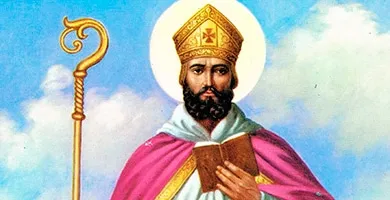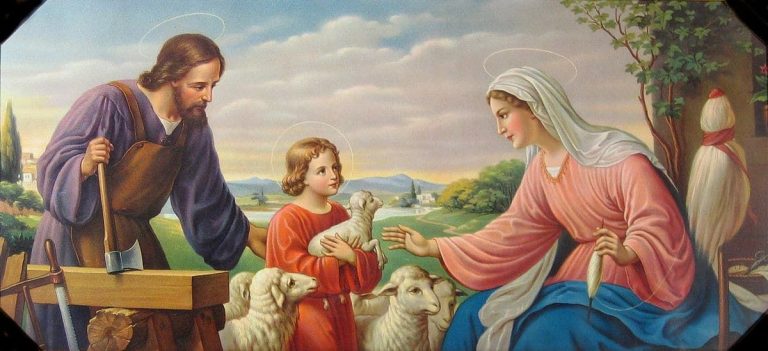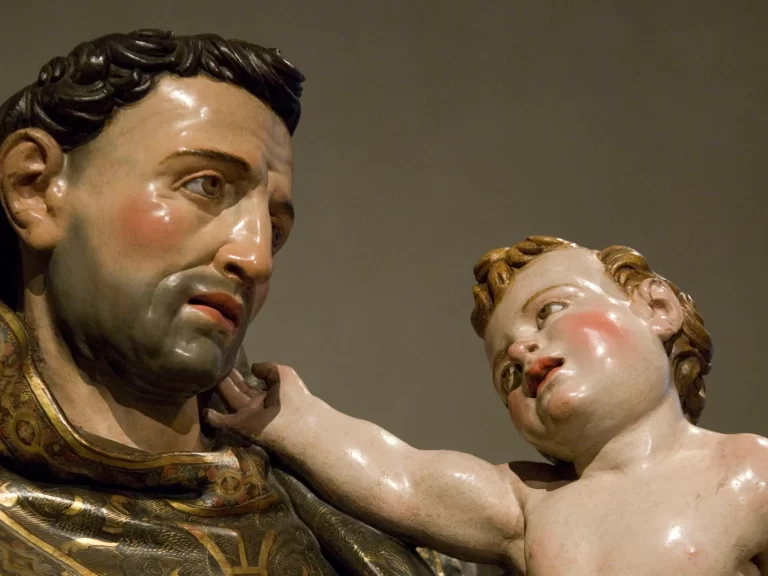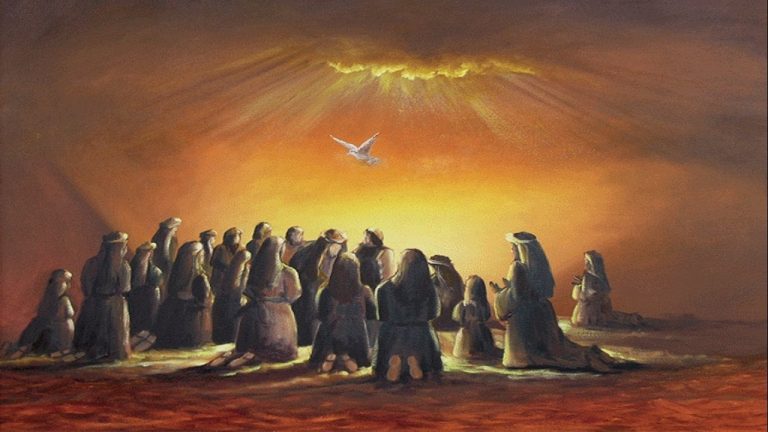Do you know who wrote Psalm 121 of the Bible? Find out here
The Psalms are words sung by men inspired by God. That’s where its name comes from. Learn in the following post everything about who wrote Psalm 121 of the Bible.
Who wrote Psalm 121 of the Bible?
It is a lovely idea that God established in the core of Singer David, which became a melody for the Lord and was used for love in the sanctuary.
In Jewish custom, King David was felt to have established the principles of this formality and viewed himself as the creator of 73 of the songs. It is also understood that they were circulated in five books. Up to this point, we note that the numbering of the songs is different in the Hebrew Bible than in the Greek.
It is customary these days to interpret the Hebrew numbering and in the annexes the numbering related to the Greek interpretation, which is kept in our formality. (See Article: Prayer of protection for children )
For their part, the Psalms have their cause in the meeting of the serenades of the Temple of Jerusalem. After some time, the congregations were enhanced with individual supplications or aggregate laments. Furthermore, they have supported the prominent devotion and have been the expressed supplication of Jesus. To date, they are the premise of the ceremonial office discussed by a large number of religious, ministers, elders and multiple characters such as the laity.
This psalm, implored by the Jews who lived in the diaspora, those settlements scattered throughout the huge urban communities, wanted to go up to Jerusalem, capital of the Kingdom of Judah, that is, to the south of Palestine, to the north was the Kingdom of Israel whose capital was known as the great Samaria, and satisfy, at least once, the journey to the Holy City.
In this line, it is there that the explorer asks for help, with the vigorous and certain expectation of obtaining it, especially in the annoying minutes during the adventure of his trip, it was overwhelming. (See Article: Psalm 91 a prayer for protection and mental and physical healing )
For them, to implore with the Psalm was for all purposes to ask with the Bible, individually or formally. The appeal of the scriptures has functional ramifications for the life of man. In our private life, as in social, man has to reliably choose only between two thoughts:
- The one whose origin lies in light and,
- The one born from darkness.
In this way, the request of the scriptures is a training that makes us escape from the sources of human tragedies, which originate from falsehoods, independence, pride among others, and shows us balance, prudence, forgiveness.
This is affirmed by breaking down the word Psalm, which has its explicit birthplace and therefore originates from Greek, and the etymological significance is: playing the strings of a melodic instrument. It is a piece or melody that contains gestures of recognition to God.
This plea arises from the need of the person who argues. He does not request magnificent things, however, only the solid salvation that he needs at an exact moment. We see that he passes over himself, to exalt God. Remember that everything is big in it.
It is known as the responsorial hymn, the song or part of a song that is discussed after the main reading in the formality of the expression of services and other non-Eucharistic festivals such as the festival of the Lord’s Passion on Good Friday. It serves to lengthen the reflection on the expression of God heard beforehand.
These sayings are the beginning of a Psalm that can be the plea of every Christian who tries in a troublesome way; similarly, it tends to be sought after both by a future minister and by someone who has a notable responsibility to society.
Cause of the Psalm
Around that time, towards the beginning of a trek, was the pleading of the pioneer who went to Jerusalem and beheld the dangers and troubles of his trek, due to the troubled street, the heat of the day, and the threats regarding marathons.
However, he realizes that God is with him now and is accompanying him on the journey, therefore he hopes that he will guide his brain and look towards the mountains, in order to have faith in God. He realizes that he will help him since God is dedicated, he does not rest day or night and is attentive to perceive what happens. It is a safe psalm; He is about a man without luck, he seeks help and discovers it in God.
In both sections, eyes are raised, perhaps from the city and its dividers, to the regular protection of neighboring mountains. We can ascend the mountains with our feet or with our eyes, however, the ascent must be coordinated with God. It’s more of a travel song.
Note the nearby network work that energizes the traveler and appeals to God for him; The main stanza seems to originate from the mouth of the person who begins the walk. It is written in the present tense when the action word is used to raise, “I raise my eyes to the mountains from which it will come…”.
The future tense of the word of action that will come in the third individual, already has the security, the confirmation that God will respond to his call, declaring the above while communicating: my help originates from God, where we are in the future tense , again, the action word comes.
Who made heaven and earth, cries the explorer with Faith in the Creator, assuming that He made everything, in what capacity can he not turn to his guidance? Consequently it is a song of confidence.
psalm 121
I will lift my eyes to the mountains;
Where does my help come from?
2 My help comes from the Lord,
Who made heaven and earth.
3 He will not venture on the pavements,
The person who guards you will not fall asleep.
4 Behold, he will neither sleep nor rest.
The person who guards Israel.
5 Jehovah is your guardian;
Jehovah is your shadow in your right hand.
6 The sun will not wear you out by day,
Not the moon in the evening time.
7 Jehovah will keep you from all hatred;
He will keep your spirit.
8 Jehovah will keep your way out and your way.
From now and into the foreseeable future and until the end of time.
Verse 1 and 2
“I will lift my eyes to the mountains” Why does he say this? In ancient history, it says in the scriptures that God was displayed to Moses on Mount Horeb and gave him the 10 rules on Mount Sinai, Abraham made him climb Mount Moriah to offer his son Isaac in the holocaust, the prophet Elijah he did so to Mount Carmel with progressively scriptural characters.
In the next piece of the stanza, the psalmist poses a question “where will my assistance come from?” We have no idea how long it took the psalmist to compose this song, regardless of whether it was several days, a month, or a year.
In all actuality, he responds by saying, “My help originates from the Lord, who made heaven and earth,” that is, my assistance does not originate from God’s production, but originates from the Creator who made the things. mountains, earth. the ocean, the sky and everything in them.
Verse 3 and 4
“The one who is watching over you will not give your foot to slip, nor the one who keeps you rest, behold, the one who keeps Israel will not sleep or rest.” The psalmist follows the idea that he was bringing up and says that as a result of the amount that Jehovah is capable of, his foot will not slip, that is, there is safety and solidity when God is with you.
God never falls asleep, he does not care about us who get tired and fantasy conquers us, he treats us in every second of our life from birth until we die and, in case we have recognized him, he will treat us. eternally, forever.
Verse 5
“The Lord is your guardian, the Lord is your shadow in your right hand” The psalmist speaks with conviction and solidity from the depths of his heart that in the second part of the chorus reveals that the Lord is your shadow in your right hand Question: When does your shadow leave you? never happens, never.
At any point you go somewhere the shadow accompanies you, there is no real way to isolate us and the psalmist analyzes God in the same way, since the closeness of our Lord is reliably close to us.
verse 6
“The sun shall not tire you by day nor the moon by night” Apparently the author remembers when the general population of Israel left Egypt, where God was their guide through the desert and by day he was a cloud to offer shade. To the town so that it would not wear out and during the night it was a pillar of flames that gave them heat and lit up the path so that they could see where they were walking.
Verse 7
“The Lord will keep you from all that is detestable, He will protect your spirit” That is where the enemy cannot hurt us and is in the spirit. God told the devil that he could contact Job’s body, but that his spirit would not contact him, that the body could vanish, but that the spirit was unable, given the possibility that we had received Jesus Christ in our hearts. I would never hurt him.
verse 8
“The Lord will keep out and your way from now on and forever” The psalmist encouraged by God reveals to us that God forgives and guides us on our way in all places forever, how wonderful is our God who thinks of us.
God does not care about the things of this world. He doesn’t have to rest, he doesn’t make mistakes or have flaws. God has all the power. That is why the Psalm is a sign of great confidence and security above all else.

Hello! Let me enthusiastically introduce myself as a dedicated blogger fueled by an intense passion for meticulously crafting insightful and well-researched blogs. My mission revolves around providing you, dear readers, with a veritable treasure trove of invaluable information.







